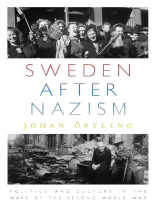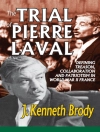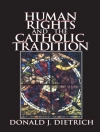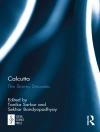As a nominally neutral power during the Second World War, Sweden in the early postwar era has received comparatively little attention from historians. Nonetheless, as this definitive study shows, the war—and particularly the specter of Nazism—changed Swedish society profoundly. Prior to 1939, many Swedes shared an unmistakable affinity for German culture, and even after the outbreak of hostilities there remained prominent apologists for the Third Reich. After the Allied victory, however, Swedish intellectuals reframed Nazism as a discredited, distinctively German phenomenon rooted in militarism and Romanticism. Accordingly, Swedes’ self-conception underwent a dramatic reformulation. From this interplay of suppressed traditions and bright dreams for the future, postwar Sweden emerged.
Table des matières
Acknowledgements
Prologue: A Sword of Damocles over the Age in Which We Live
Chapter 1. Nazism and the Twentieth Century
Chapter 2. The Experience of Nazism
Chapter 3. Nazism as Stigma
Chapter 4. The Ideas of 1945
Chapter 5. German Autumn
Chapter 6. The Lessons of Nazism
Index of Persons
A propos de l’auteur
Johan Östling is Associate Professor of History and Pro Futura Scientia Fellow at Lund University, and the Swedish Collegium for Advanced Study (SCAS) in Uppsala. He has received a number of awards, including the Clio Prize and the Nils Klim Prize, and he has been a visiting scholar at the Center for Contemporary History in Potsdam and the Max Planck Institute for the History of Science in Berlin.












